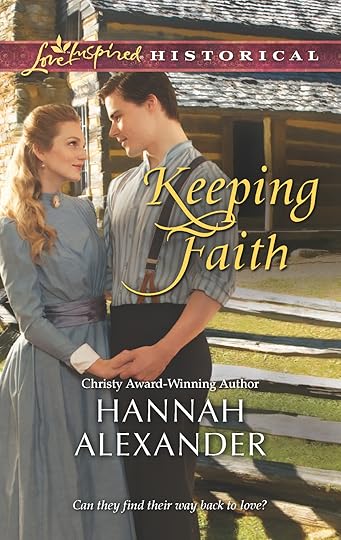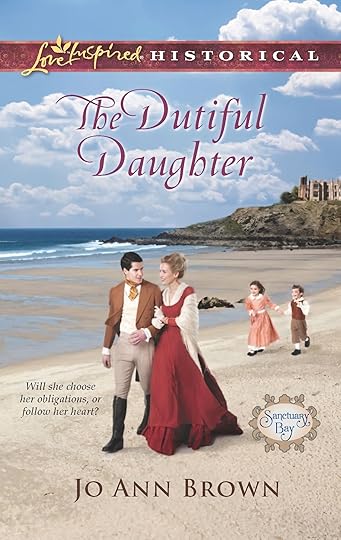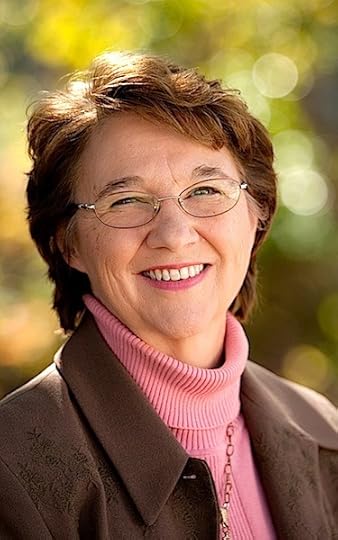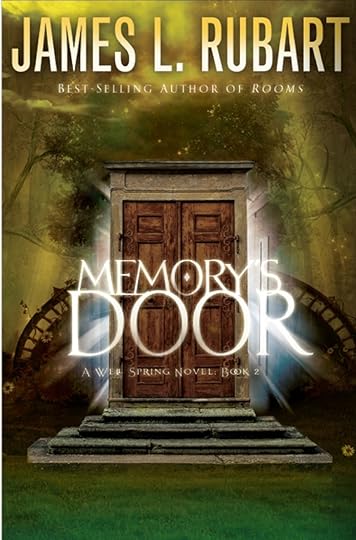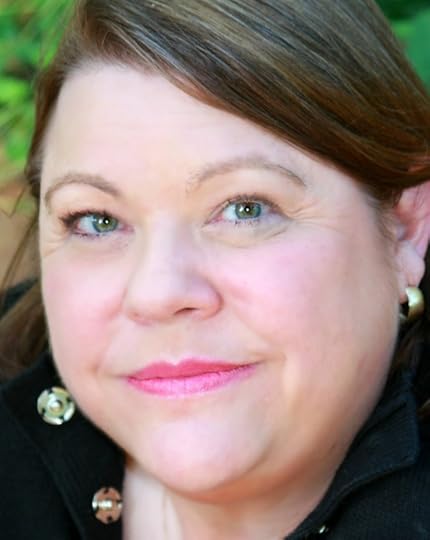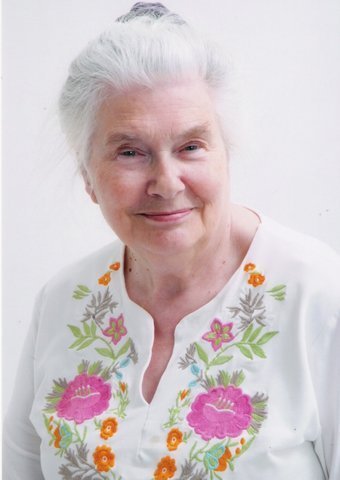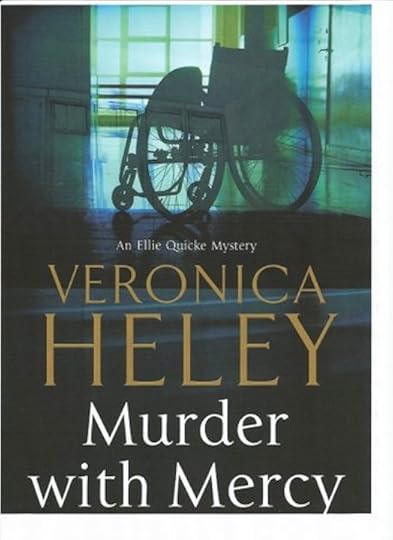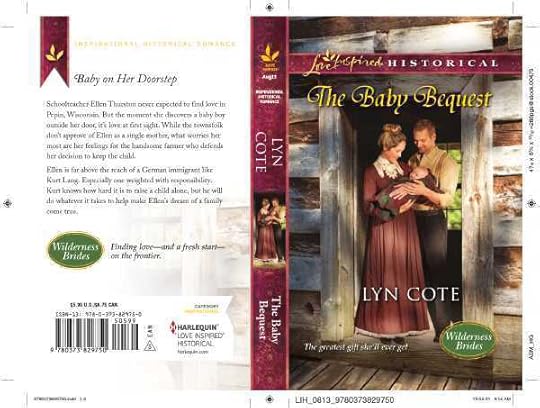Lyn Cote's Blog, page 65
September 3, 2013
Author Hannah Alexander & Mother’s Only Weak Spot
My guest today is my longtime friend Author Hannah Alexander. Hannah is going to tell us about her mother’s weak spot and her latest Love Inspired Historical Keeping Faith. And remember to leave a comment to enter the drawing for a copy. Here’s Hannah:
Mom Faced WWII
“My mother had a tendency to faint at the sight of blood. That, however, was her only weak spot. Everything else about her was strong, independent and determined. She worked at Hughes Aircraft as a machinist during World War !!, and farmed alongside my father while they both worked full-time jobs to dig their way out of the poverty that followed them from the Great Depression. Mom chose to drive a school bus in California in an era when folks thought driving a bus was a man’s job. She took the harassment that came with the job without complaint. Mom also often drove alone halfway across country if a family member was ill and needed her help’ however, she protested when I followed in her footsteps years later.
Mom’s example was why I had no trouble writing about strong heroines when I began my writing career. The irony is that, though I base my female leads on the strengths of my mother, most of my characters can’t afford to faint at the sight of blood, because they work in the medical field!
To purchase, click here. Keeping Faith (Love Inspired Historical)
Dr. Victoria Fenway, my heroine in Keeping Faith,
is an unusual character because she not only learned her late husband’s skills in medicine in a time when it was taboo for a woman to practice medicine, but she also incorporated herbal remedies she’d learned as a child. And she continues treating patients after her husband’s murder. As my mother would have done in 1855, Victoria joins a wagon train to head west. Secretly, she intends to hunt down her husband’s murderer and stop him from killing others, but in order to gain entry as a single woman, she practices her healing skills on her fellow travelers, who have no choice but to accept her skills–since she’s the only physician traveling with them.
Even strong, independent women, however, can be weakened by the power of love, and Victoria’s weakness is the wagon train captain, Joseph Rickard, whom she nearly married ten years earlier. Her battle becomes more real when she discovers he has never stopped loving her.
My mother wasn’t often accepted in the social groups
available to her in her lifetime because, much like Dr. Victoria Fenway, she walked a different pathway from most women. Mom’s been in heaven for 1½ years, where I believe she’s accepted and loved as she is, and no longer has to struggle to fulfill her destiny.
As for Dr. Victoria Fenway, you can see her more clearly, and read about her in Keeping Faith if you pull up the first chapter at w
September 1, 2013
Lyn Reviews Author Melody Carlson’s Grace Unplugged & Giveaway
August 27, 2013
Author Jo Ann Brown & Grandma Loveland
My guest today is Author Jo Ann Brown who says she can’t write wimpy heroines. But she is doing a giveaway of her Love Inspired Historical, The Dutiful Daughter. Here’s Jo Ann:
No Wimpy Heroines
“I don’t know how to write heroines that aren’t strong. I love daring heroes, and each of them deserves a strong woman who is willing to face the challenges life throws in her path.
Grandma Loveland
I learned about strong women from my mother’s mother, my Grandma Loveland. She never hesitated to help her family. She was a farm wife during the Depression and raised four children of her own plus one of her nephews who was deaf. When my grandfather had a bad heart attack while still quite young and could no longer work, she took a job cleaning houses. She tended to him, making sure he did not miss his meds and even convincing him to quit smoking after almost fifty years.
An uncle going blind
At the same time, she assisted my uncle who was going blind, making sure he was able to visit with his friends. I get tired just thinking about doing all that…every day. I’m sure she was exhausted, too, but she always had time to read a story to a grandchild or recite one of the poems she memorized during her eight years in a one-room schoolhouse. She gave me wondrous gifts.
Not only her love and her time,
but her belief that if I wanted something badly enough and was willing to work for it, no challenge was insurmountable.
To purchase, click here. The Dutiful Daughter (Love Inspired Historical)
I can’t imagine a better gift any woman could give to a child. That’s probably why my heroine Sophia shares a similar gift with the two children in the book. Sophia Meriweather, the heroine of The Dutiful Daughter (the first book in the Sanctuary Bay trilogy from Harlequin Love Inspired), knows her duty is to marry a distant cousin who has inherited her late father’s title. It is what she needs to do to help her family.”–Jo Ann
Thanks, Jo Ann. Your grandma is an example to all of us. Question for comment to win a copy of The Dutiful Daughter. What do you hope others will say about you after you’re gone or even now?–Lyn
my website: www.joannbrownbooks.com

 Send to Kindle
Send to Kindle
August 25, 2013
Shaker Author Ann H Gabhart Tells of Becoming a Mother at 17 & Finding Strength
Author Ann Gabhart is my guest today. I told her that I am always amazed and touched by how honest my guests are about their life experiences. Ann is no exception. She is also offering a giveaway of her new book, Christmas at Harmony Hill. Here’s Ann:
At seventeen, I was expecting my first child.
Naturally I was eager to hold my baby in my arms, but I was also nervous and scared at the thought of going through the birthing process. I’d read enough to know it wasn’t going to be pleasant, but I didn’t really know what to expect.
Left Alone in Labor
This was long before hospitals had those special maternity wings with comfortable rooms for entire families to await the arrival of their new baby. Instead, I was whisked away from my husband and mother, ushered into a hospital room where I was examined, prodded and prepped by a nurse. Then the nurse left me in the room totally alone. My husband and mother weren’t allowed to be with me. They had to stay in the waiting area.
Assumptions were wrong.
Because it was my first child, the doctor assumed I’d have a long labor and since it was the middle of the night, he was in no hurry to get to the hospital. Nobody monitored my labor pains. Nobody offered me any pain relief or even advice on how to handle the labor pains. I felt very alone in that hospital room as the pains strengthened. Maybe the nurses thought I would ring the bell if the pains got too intense, but I was timid and didn’t want to complain. When a contraction gripped me, I counted dots in the ceiling tiles to take my mind off the pain. And I prayed.
Finally a nurse came into the room.
She didn’t take my vital signs. She barely glanced my way as she went to the window to check if it was raining. It was storming that night – naturally. She did ask how I was feeling. When I told her the pains weren’t stopping, things got interesting. Three nurses descended on me, telling me not to push and to breathe into the mask they shoved over my face. When I woke up in the delivery room, the doctor was there and so was my precious son.
With the Lord’s Help
I became a mother and found out about strength that night. With the Lord’s help, I was strong enough to make it through that lonesome valley of pain into the bright light of a baby in my arms.
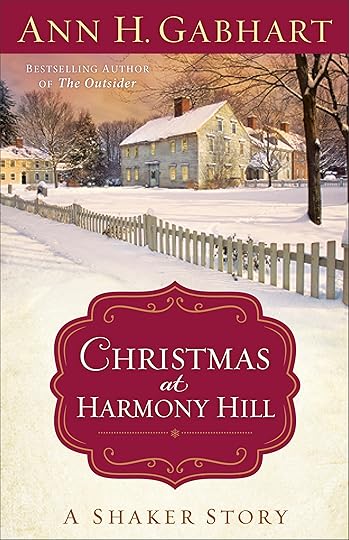
To purhase, click here. Christmas at Harmony Hill: A Shaker Story
I remembered all that while writing Christmas at Harmony Hill. Heather faces the birth of her child while her husband is away fighting in the Civil War. Yea, though I walk through the valley of the shadow of death. That’s the Scripture I threaded into the story as Heather feels alone and afraid in the Shaker village that has given her shelter.
Thou art with me. Heather, the same as I did years ago, reaches for the true source of strength. Women are strong. The Lord knew we’d need that kind of blessed strength to be mothers.”–Ann
August 18, 2013
Lyn Reviews Mystery Author Suzanne Young’s Murder by Mishap
August 13, 2013
Lyn Reviews Turbulence by Love Inspired Suspense Author Dana Mentink
August 11, 2013
Strong Women, And a Male Author Who Loves Them
My guest today is Author James Rubart. Sometimes I like to shake things up a bit and get the Male Point of View. I found out that James had a lot to say about strong women (BTW, HE’S OFFERING A BOOK GIVEAWAY! SO DON’T FORGET TO LEAVE A COMMENT.) Here’s James on STRONG WOMEN:
“You find them in all of my novels: Strong women. They are a hallmark of each of my stories.
Why? Three reasons:
Because I think chauvinism is still rampant in our culture and regrettably often even more prevalent in the church. Women are marginalized, put down, not respected, relegated to cooking and cleaning. Which is tragic given the stature which Jesus gave women. (Who did he appear to first when he was resurrected?)
My mom was a warrior as I grew up. We went through some dark years in our family and she was the rock we held onto.
My wife is stunning in her strength. Her selflessness. Her discernment. Her tenderness mixed with a fierceness that no one would want to get in the way of.
Because of these things, I like to show the strength of women in my stories. Show their wisdom, their tenacity, their insight, their power. How they are different than men, but needed in this adventure and battle we call life as much as men are, and sometimes more.
In my Well Spring series
(first book is Soul’s Gate, the just released sequel, Memory’s Door, and the The Spirit Bridge releasing next spring) I have a character named Dana Raine and she is learning just how strong she is. The series centers around four characters over whom a prophecy was spoken. One is the Song, one is the Teacher, one is the Temple, and one is the Leader.
Yep, you guessed it. Dana is the Leader and over the course of the series we see Dana throw off doubts about her gifting and step into her role as the Leader in life-saving ways again and again. She must provide answers when the men don’t have them. She must stand up against the enemy when the others around her are caving in. She must lead like she’s never led before if the Warriors Riding are to survive their battle with the Wolf of the prophecy. She must be stronger than she ever imagined she could be.
One More Thought Before I Go
Rise up O woman of God, your strength is needed as well. You have it. It’s in there. Don’t be afraid of your strength and don’t be afraid to show it to others. Believe me, I know what you’re saying right now. “James, you don’t know how hard it is to do that! You don’t know what that costs and how men perceive those kind of actions.”
You’re right, I don’t know, because I’m a man. But my wife tells me how hard it is for women to live out of their strength. I’m sorry for that. But it doesn’t mean you’re not needed. You are. You are strong. The Spirit of Jesus is on you and in you, and there are powerful things you can do through him. Believe that, dear sister. Believe.”–James
August 6, 2013
Lyn Interviews Period Mystery Author Julianna Deering
Today my guest is Mystery Author Julianna Deering who is writing period books, her new series of Drew Farthering mysteries set in 1930s England. I don’t know about you but I’ve always loved the 1930′s mysteries like Erle Stanley Gardner and Agatha Christie. Here’s Julianna:
1-Tell us a little about your writing and your real life.
My real life is . . . different. I have the singular blessing of working from home almost all the time. Granted, most writers do their work from home (or at their location of choice), but not many legal secretaries have that privilege. I hope to write fulltime eventually, but that time has not yet come. The job I have now is the perfect one for me until it does.
I am very much a night owl, and when I worked a regular nine-to-five job, getting going in the morning was always such a struggle. I’m just not made that way. So now I can work when I am naturally at my best, from about noon until ten or later.
Thanks to the internet, I can do almost everything I need to do without going into the office. This also gives me a lot of flexibility when I want to get my writing done. Plus I always feel more creative in my own space and with my cats around.
So, what’s my life like? Usually I run errands and whatever else I need to do outside the house in the mornings. Then I get to work when I get home. I get any office work done first, and then I try to get my creative work done. Now that Rules of Murder is actually out, I’ve been spending a lot of time on promotional things like interviews, which is a lot of fun but much more time consuming than I expected.
I just got back the notes from my editor on the third book in the series, Murder at the Mikado. I have some work to do on that one, but I enjoy that part of the process. I always need a fresh set of eyes to point out what could be better in my stories, and this editor is extremely helpful besides just being a really nice guy.
When I’m done with my work, I like to sew. Quilting and cross stitch are both favorites of mine, and I have lined up more projects of both kinds than I can ever do in my lifetime. But I think I need that type of creative outlet. Writing is creative, but it’s all mental. There is something soothingly tactile about fabric and threads and beads and buttons and everything else involved that gives my mind a rest and refreshes me inside.
And last, but certainly not least (they would never settle for least!), are my cats. Eloise, Elizabeth and Petie are funny and sweet and absolutely essential to my happiness. I thank God for them every day.
As far as the writing itself is concerned, I am working on the edits for my third Drew book right now. I’m also toying with some ideas for other types of stories. I’d like to get back to medieval romance one day, and I have a fantasy story that’s just clamoring to get out. Stay tuned!
2-Was there a time in your life when you think God challenged you to become stronger? Please share.
I think He challenges me to be stronger all the time. But there was a particular time when I felt He was really moving me out of my comfort zone. I had worked as an accountant for a number of years, but I really wasn’t happy there. I felt I needed to do something more creative with my life, but that would, of course, be much riskier than staying where I was.
Eventually there came a time when I felt He was urging me to trust Him to make a way for me. I quit my job and took an almost 50% pay cut to become a secretary. I felt that would still pay my bills while leaving me some mental energy at the end of the day to do my writing.
That job eventually became the extremely flexible, work-from-home job I have now, the one that is just what I need. But I had to step out of my comfort zone and trust God to make it all work out even when it looked like a huge mistake.
He has provided for me every step of the way.
3-What is special about your most recent book to you?
Rules of Murder, well in fact the whole Drew Farthering series, is very special to me. These are the books of my heart. I have for a long time been a fan of classic mysteries and of the romantic comedies of the 1930s and ’40.
Drew and Madeline give me the best of both worlds. I’ve had a wonderful time writing the stories and enjoying the relationship between Drew and Madeline. They have a lot of fun together, and I think readers will have fun with them, too.
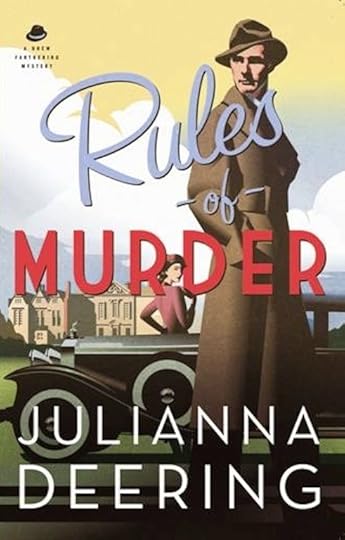
To purchase, click here. Rules of Murder (A Drew Farthering Mystery Book #1)
Back Cover Blurb:
Drew Farthering loves a good mystery, although he generally expects to find it in the pages of a novel, not on the grounds of his country estate. When a weekend party at Farthering Place is ruined by murder and the police seem flummoxed, Drew decides to look into the crime himself. With the help of his best friend, Nick Dennison, an avid mystery reader, and Madeline Parker, a beautiful and whip-smart American debutante staying as a guest, the three try to solve the mystery as a lark, using the methods from their favorite novels.??Soon, financial irregularities at Drew’s stepfather’s company come to light and it’s clear that all who remain at Farthering Place could be in danger. Trying hard to remain one step ahead of the killer–and trying harder to impress Madeline–Drew must decide how far to take this game.
Author Bio:
JULIANNA DEERING has always been an avid reader and a lover of storytelling, whether on the page, the screen or the stage. This, along with her keen interest in history and her Christian faith, shows in her tales of love, forgiveness and triumph over adversity. A fifth-generation Texan, she makes her home north of Dallas with three spoiled cats and, when not writing, spends her free time quilting, cross stitching and watching NHL hockey. Her new series of Drew Farthering mysteries set in 1930s England debuts with Rules of Murder (Bethany House, Summer 2013) and will be followed by Death by the Book (Bethany House, Spring 2014) and Murder at the Mikado (Bethany House, Summer 2014). She is represented by Wendy Lawton of the Books & Such Literary Agency (www.booksandsuch.biz).
August 4, 2013
British Mystery Author Veronica Heley & Never Look Back?
I’m pleased to have British Mystery Author Veronica Heley as my guest again! Veronica is going to talk a little about how to look at life and as an example Mary, the Mother of Jesus. She also is going share a bit about her latest mystery, MURDER WITH MERCY. And she will be giving away a PDF copy to one commenter. So be sure to leave a comment about the question at the end. (A PDF copy will be sent through email to be read on computer or print out your own copy. FYI~) Here’s Veronica:
‘Never Look Back’
was a popular song some years ago. Is it good advice, I wonder? I know people who try to forget the past and are always pressing on, looking to the future, as if the past has nothing to teach them. Perhaps they refuse to look back because it is too painful to do so? Should a widow whose marriage has been happy, never look back because the contrast with her new life is too great?
Never Look Forward?
On the other hand, I also know people who refuse to look forward, who are always trying to recreate the past in their lives. Is this right, or even sensible? If their past contained some traumatic event, is it a good idea to keep dwelling upon it? Should we keep revisiting the horror of, say, having been mugged in the street, and allow it to influence our future?
How do we cope with our memories?
Which did Mary do?
I was thinking about the Virgin Mary. A widow, after Jesus’ death she might well have retreated into herself after all that she’d been through. She moved to Ephesus, far from Galilee, far from Jerusalem . . . far from everything she had ever known. She had no prominent role to play in the formation of the Christian church.
She might easily have sunk into domesticity, planning meals and mending clothes, becoming a ‘Granny’, useful only in looking after the next generation of children.
What if she had deliberately refused to look back upon her life, as being too painful to recall?
But, along came Luke. He was a doctor, yes. But also, a reporter with a mission. He’d been on the road with Paul and was now looking for some source material. Who better to provide it than Mary?
Now she could have done the weepy-waley bit, but she didn’t. One by one she brought out her precious memories for him to record. We would be missing so much about Jesus’ early life; the visit of the angel to tell Mary whose child she bore, the visit to her cousin who was awaiting the birth of John the Baptist, Mary’s song of praise, the birth of Jesus and the visit of the shepherds. Who else could have told Luke these things? (And what would our Christmases be like without them?)
Mired in Sorrow?
I know of women who can’t get past the fact of a broken marriage or, even worse, of a child lost to cancer. They are mired in their own sorrow. They cannot move forward. They cannot grow or help others in any way. Yes, I feel sorrow for them, but also a degree of impatience. Ought we not, with God’s grace, to move on in our lives after we’ve been hit by sorrow, even if there is a cost to doing so?
Both the heroines of my books have lost their husbands
and Ellie, in particular has had to struggle with a painful legacy of bullying from the past which has left her with little self-worth. But, despite her feelings of inadequacy, she has learned that she can help others in distress. It may cost her something to do so, but she grits her teeth and gets on with it. Secure in a happy second marriage, she is able to empathise with others who are in trouble, She can put the hurts of her earlier life into perspective and move forward. Perhaps because she had several miscarriages in the past, she can find the strength to go out of her way to help a boy who has got himself into deep trouble.
A friend said that we should use the driver’s mirror in the car. Look back . . . to move forward.
What do you think?”--Veronica
To purchase, click here. Murder with Mercy (Ellie Quicke Mysteries)
1st page for MURDER WITH MERCY.
Ellie Quicke had problems enough before she was asked to look into the untimely death of first one neighbour, and then another. Not to mention a third. Each one getting closer to home . . . while her daughter, with her husband in a wheelchair, struggled to keep the agency going.
There really was no need for anyone to suffer nowadays, was there?
The important thing was to keep a list of people who needed her help. When she heard of someone she entered their name in her diary and, when she was having a good day, she went to see them.
She’d just heard the sad news about an old friend, confined to a wheelchair after an accident. He was taking it hard, poor man. She must make time to visit him soon.
The list never seemed to get any shorter, which was a bit worrying because she was not getting any younger. She told herself to think of all the people whose names she’d been able to cross off over time, and that made her feel better.
The only thing was, she couldn’t remember where she’d put her diary. She must have another look for it after supper.
One of the pleasures of Ellie’s life was a trip to a garden centre.
She’d planted masses of wallflowers in the herbaceous border in the back garden so that even in the nastiest of weathers the effect was not entirely grim. Soon the viburnum and the witch hazel should be showing colour, though her winter-flowering pansies had stopped blooming when the wind had turned to the east. As far as she was concerned, it was a penance and not a pleasure to go into the garden in November.
There wasn’t much doing in the conservatory at the back of the house, either. In the old days their elderly housekeeper had regarded this as her territory, but lately she’d allowed Ellie to potter there, picking dead leaves off the over-wintering geraniums, spraying the azaleas and coaxing the Christmas cactuses into flower.
Titivating wasn’t the same thing as planting so, when Ellie received yet another importunate letter from a woman she’d tried to help, she’d tossed it into the waste paper basket – knowing it would have to be retrieved and dealt with at some point – and decided to take the rest of the day off.
And I insisted Veronica include a very good review from PW (a journal which is famous for not so nice reviews!)
Publishers Weekly REVIEW, 29th July 2013.
‘Det. Constable Lesley Milburn calls on Ellie Quicke for help in looking into some suspicious suicides in Heley’s hectic 14th mystery featuring the veteran amateur sleuth (after 2012′s Murder in Mind). Exasperated Ellie winds up contending with distraught relatives of the victims who show up at her suburban London home for consolation. Meanwhile, practically everyone in Ellie’s household is down with the flu, and the conversion of Pryce House into a hotel that she oversees has slowed becasuse of expensive mishaps on the site that someone is trying to blame on her 12-year-old ward, MikeyPryce. No sooner does Social Services make a house call than work-averse, spendthrift Edwina Pryce, heiress to the estate, accuses sensible Ellie of being behind the sabotage. With her usual flair, Ellie strives to accommodate all distressed parties, solve the mysterious deaths, and keep Mikey and the Pryce mansion under her guardianship in this rewarding cozy.’
Question: So which are you prone to–looking back or looking forward? Both of neither? Leave a comment to enter the drawing for the PDF copy of MURDER WITH MYSTERY!–Lyn
Your email:
Now for last week’s winners of one autographed copy of my newest book THE BABY BEQUEST.
KayM, Emma, and Brittany. If you didn’t win, be sure to enter the GoodReads giveaway to the left. I’m giving away two copies at the end of August!

 Send to Kindle
Send to Kindle
July 30, 2013
Lyn’s Latest–The Baby Bequest-Excerpt from Chapter One
The Baby Bequest
by Lyn Cote
Chapter One
Pepin, Wisconsin
August, 1870
Clutching the railing of the riverboat, Miss Ellen Thurston ached as if she’d been beaten. Now she truly understood the word heartbroken. Images of her sister in her pale blue wedding dress insistently flashed through her mind. As if she could wipe them away, she passed a hand over her eyes. The trip north had been both brief and endless.
She forced herself back to the present. She was here to start her new life.
The sunlight glittering on the Mississippi River nearly blinded her. The brim of her stylish hat fell short and she shaded her eyes, scanning the jumble of dusty, rustic buildings, seeking her cousin, Ophelia, and Ophelia’s husband. But only a few strangers had gathered to watch the boat dock. Loneliness nearly choked her. Ophelia, please be here. I need you.
The riverboat men called to each other as the captain guided the boat to the wharf. With a bump, the boat docked and the men began to wrestle thick ropes to harness the boat to the pier.
As she watched the rough ropes being rasped back and forth, she felt the same sensation as she relived her recent struggle. Leaving home had been more difficult than she could have anticipated. But staying had been impossible. Why had she gone against her better judgment and let her heart take a chance?
The black porter who had assisted her during her trip appeared beside her. “Miss, I will see to your trunk and boxes, never fear.”
She smiled at him and offered her hand. “You’ve been so kind. Thank you.”
Looking surprised, he shook her hand. “It’s been my pleasure to serve you, miss. Yes, indeed it has.”
His courtesy helped her take a deep breath. She merely had to hold herself together till she was safely at Ophelia’s. There, with her cousin—who was closer than her sister— she could mourn her loss privately, inwardly.
Soon she was standing on dry land with her luggage piled around her. She handed the porter a generous tip and he bowed his thanks and left her. Ellen glanced around, looking for her cousin in vain. Could something have happened to her? Even as this fear struck, she pushed it from her mind. Ophelia was probably just a bit late. Still, standing here alone made her painfully conspicuous.
A furtive movement across the way caught her attention. A thin, blond lad who looked to be in his mid-teens was sneaking—yes, definitely sneaking—around the back of a store. She wondered what he was up to. But she didn’t know much about this town, and she shouldn’t poke her nose into someone else’s business. Besides, what wrong could a lad that age be doing?
She turned her mind back to her own dilemma. Who could she go to for assistance? Who would know the possible reason why Ophelia wasn’t here to meet her? Searching her mind, she recalled someone she’d met on her one visit here a year ago. She picked up her skirts and walked to Ashford’s General Store.
The bell jingled as she entered, and two men turned to see who had come in. One she recognized as the proprietor, Mr. Ashford, and one was a stranger—a very handsome stranger—with wavy blond hair. Holton had the same kind of hair. The likeness stabbed her.
Then she noticed a young girl about fourteen slipping down the stairs at the rear of the store. She eased the back door open and through the gap, Ellen glimpsed the young lad. Ah, calf love.
Ellen held her polite mask in place, turning her attention to the older of the two men. “Good day, Mr. Ashford. I don’t know if you remember me—”
“Miss Thurston!” the storekeeper exclaimed and hurried around the counter. “We didn’t expect you for another few days.”
This brought her up sharply. “I wrote my cousin almost two weeks ago that I’d be arriving today.”
The storekeeper frowned. “I thought Mrs. Steward said you’d be arriving later this week.”
“Oh, dear.” Ellen voiced her sinking dismay as she turned toward the windows facing the street. Her mound of boxes and valises sat forlornly on her trunk at the head of the dock. How was she going to get to Ophelia? Her grip on her polite facade was slipping. “I could walk to the Steward’s but my things…”
“We’ll get some boys to bring them here—”
The stranger in the store interrupted, clearing his throat, and bowed. “Mr. Ashford, please to introduce me. I may help, perhaps?” The man spoke with a thick German accent.
The man also unfortunately had blue eyes. Again, his likeness to Holton, who had misled her, churned within. She wanted to turn her back to him.
Mr. Ashford hesitated, then nodded. “A good idea.” He turned to Ellen. “Miss Ellen Thurston, may I introduce you to another newcomer in our little town, Mr. Kurt Lang, a Dutchman?”
Ellen recognized that Mr. Ashford was using the ethnic slur, “Dutch,” a corruption of Deutsche, the correct term for German immigrants. Hiding her acute discomfort with the insult, Ellen extended her gloved hand and curtseyed as politeness demanded.
Mr. Lang approached swiftly and bowed over her hand, murmuring something that sounded more like French than German.
Ellen withdrew her hand and tried not to look the man full in the face, but she failed. She found that not only did he have blond hair with a natural wave and blue eyes that reminded her of Holton, but his face was altogether too handsome. And the worst was that his smile too kind. Her facade began slipping even more as tears hovered just behind her eyes.
“I live near the Stewards, Miss Thurston,” the stranger said, sounding polite but stiff. “I drive you.”
Ellen looked to Mr. Ashford a bit desperately. Young ladies of quality observed a strict code of conduct, especially those who became schoolteachers. Should she ride alone with this man?
Mr. Ashford also seemed a bit uncomfortable. “Mr. Lang has been living here for over six months and is a respectable person. Very respectable.” The man lowered his voice and added, “Even if he is a foreigner.”
Ellen stiffened at this second slur from Mr. Ashford.
Mr. Lang himself looked mortified but said nothing in return.
With effort, Ellen swallowed her discomfort. The man couldn’t help reminding her of someone she didn’t want to be reminded of. More important, she would not let him think that she embraced the popular prejudice against anyone not born in America.
“We are a nation of immigrants, Mr. Ashford,” she said with a smile to lighten the scold. She turned to Mr. Lang. “Thank you, Mr. Lang, I am ready whenever you are.”
Mr. Lang’s gaze met hers in sudden connection. He bowed again. “I finish and take you.”
She heard in these words a hidden thank-you for her comment.
A few moments later, she stood on the shady porch of the store, watching the man load her trunk, two boxes of books and her valises onto the back of his wagon along with his goods. She noticed it was easy for him—he was quite strong. She also noticed he made no effort to gain her attention or show off. He just did what he’d said he’d do. That definitely differed from Holton, the consummate actor.
This man’s neat appearance reminded her that she must look somewhat disheveled from her trip, increasing her feelings of awkwardness at being alone with the stranger. She’d often felt that same way with Holton, too. His Eastern polish should have warned her away—if her own instincts hadn’t.
At his curt nod, she met Mr. Lang at the wagon side and he helped her up the steps. His touch warmed her skin, catching her off guard. Rattled, she sat rigidly straight on the high bench, warning him away.
Just then, the storekeeper’s wife hurried out the door. “Miss Thurston! Ned just called upstairs that you’d arrived.” The flustered woman hurried over and reached up to shake hands with Ellen. “We didn’t expect you so soon.”
“Yes, Mr. Ashford said as much. I’d told my cousin when I was arriving, but perhaps she didn’t receive my letter.”
“The school isn’t quite ready, you know.” Mrs. Ashford looked down and obviously realized that she’d rushed outside without taking off her smeared kitchen apron. She snatched it off.
“That’s fine. My cousin wanted me to come for a visit, anyway.” Ophelia’s invitation to visit before the teaching job began had come months before. Ellen suffered a twinge, hoping this was all just a minor misunderstanding. Then she thought of Ophelia’s little boy. Little ones were so at risk for illness. Perhaps something had happened?
She scolded herself for jumping to conclusions. After a few more parting remarks were exchanged, Mr. Lang slapped the reins, and the team started down the dusty road toward the track that Ellen recognized from her earlier visit to Pepin.
The two of them sat in a polite silence. As they left the town behind them, Ellen tried to accustom herself to the forest that crowded in on them like a brooding presence. The atmosphere did not raise her spirits. And it was taking every ounce of composure she had left to sit beside this stranger.
Then, when the silence had become unbearable, Mr. Lang asked gruffly, “You come far?”
“Just from Galena.” Then she realized a newcomer might not know where Galena was. “It’s south of here in Illinois, about a five-day trip. You may have heard of it. President Grant’s home is there.”
“Your president, he comes from your town?”
She nodded and didn’t add that her hometown had a bad case of self-importance over this. They’d all forgotten how many of them had previously scorned Ulysses S. Grant. “Before the war, he and his father owned a leather shop.” She hadn’t meant to say this, but speaking her mind to someone at last on the topic presented an opportunity too attractive to be missed. She found President Grant’s story extraordinary, though not everyone did.
“A leather shop?” The man sounded disbelieving.
“Yes.” She stopped herself from saying more in case Mr. Lang thought that she was disparaging their president. The wagon rocked over a ridge in the road. Why couldn’t it move more quickly?
“This land is different. In Germany, no tradesman would be general or president.”
Ellen couldn’t miss the deep emotion with which Mr. Lang spoke these few words. She tilted her face so she could see him around the brim of her hat, then regretted it. The man had expressive eyebrows and thick brown lashes, another resemblance to Holton. Unhappy thoughts of home bombarded her.
As another conversational lull blossomed, crows filled the silence, squawking as if irritated by the human intrusion. She felt the same discontent. She wanted only to be with dear Ophelia, and she wasn’t sure she could stand much more time alone with this disturbing stranger.
She sought another way to put distance between them. “I am going to be the schoolteacher here. Do you have children?” Ellen hoped he’d say that he and his wife had none, and hence she would not come in contact with this man much in the future.
“I am not married. But I have two…students.”
“I’m sorry, I don’t understand,” Ellen said, clutching the side of the wagon as they drove over another rough patch, her stomach lurching.
“My brother Gunther and my nephew Johann. They will come to school.”
This man had responsibilities she hadn’t guessed. Yet his tone had been grim, as if his charges were a sore subject.
“How old are they?” Do they speak English? she wanted to ask. She sincerely hoped so.
“Gunther is sixteen and Johann is seven.” Then he answered her unspoken question. “We speak English some at home. But is hard for them.”
She nodded out of politeness but she couldn’t help voicing an immediate concern. “Isn’t your brother a bit old to attend school? Most students only go to the eighth grade—I mean, until about thirteen years old.”
“Gunther needs to learn much about this country. He will go to school.”
The man’s tone brooked no dispute. So she offered none, straightening her back and wishing the horse would go faster.
Yes, your brother will attend, but will he try to learn? And in consequence, will he make my job harder?”
So there is the beginning of my latest story. I hope you will enjoy reading how Kurt Lang and Miss Ellen Thurston overcome the prejudices separating them and in the process create a family for a little orphan.–Lyn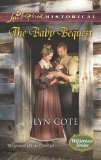

To purchase, click cover.

 Send to Kindle
Send to Kindle


